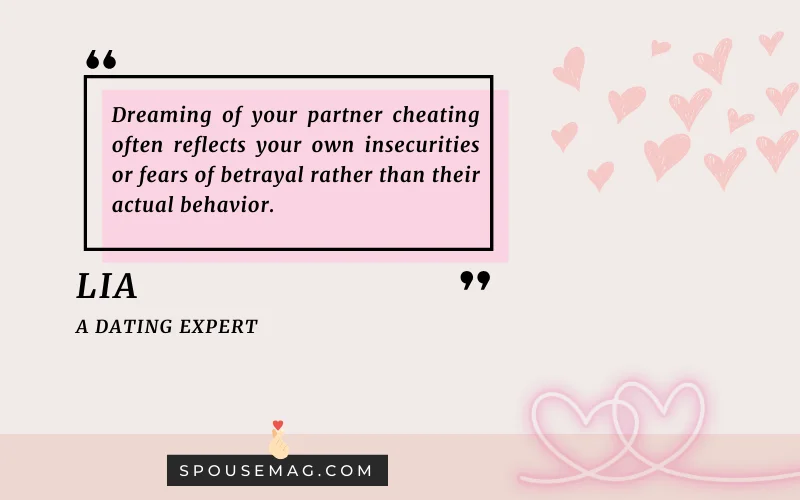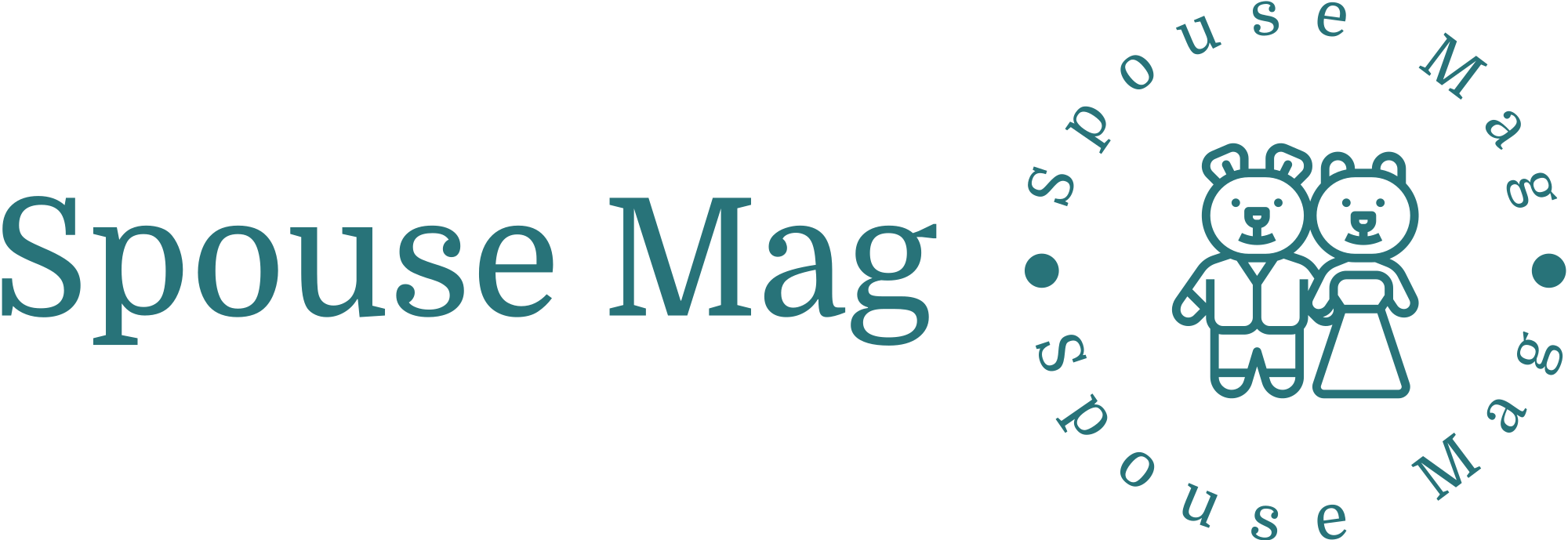
Dreaming about your partner cheating can feel like a rollercoaster of emotions, but it’s not always a red flag for your relationship. Instead, it’s like your brain throwing a dramatic scene to spotlight your own insecurities or anxieties.
You’re feeling a bit wobbly on the trust front, and your subconscious is just showing you what’s been bubbling beneath the surface.
Rather than freaking out, think of it as a quirky signal from your inner self, inviting you to have a heart-to-heart with your partner.
Quiz: What Does It Mean to Dream of Your Partner Cheating on You?
7 Interpretations of Your Dreams About Your Partner Cheating:
These are some possible meanings behind why you are having those dreams in which your partner is cheating:
1. Feeling Overwhelmed by Stress
When life gets stressful—like handling a mountain of work, school projects, or personal challenges— a guy appearing in your dreams can become a dramatic outlet for that pressure. It’s as if your mind takes all that stress and transforms it into a soap opera of cheating.
So, if you’ve been under pressure lately, your dreams are just reflecting your overwhelmed state. Finding ways to de-stress, like taking breaks or prioritizing self-care, could help turn down the volume on these dramatic dreams.
Jenna, 26, found herself dreaming about her partner cheating during a hectic work period. The stress from her busy schedule was manifesting in her dreams. She realized that managing her stress better helped reduce these intense dreams.
2. Craving More in Your Relationship
If your relationship feels like it’s missing a spark, dreaming about cheating can sometimes highlight this dissatisfaction.
Think of it as your subconscious saying, “Hey, something’s not quite right here.” Maybe you’re longing for more romance, better communication, or just a deeper connection. These dreams are a creative way of expressing your unmet desires.
Use this insight to talk with your partner about what you’re both looking for and how to bring more of those needs into your relationship. It’s a chance to turn dream drama into real-life improvements.
Lucy, 29, started dreaming about cheating when she felt disconnected from her partner. Her dreams highlighted her need for more emotional closeness. Talking with her partner about her feelings improved their relationship.
| You Cheating in the Dream | Your Partner Cheating in the Dream |
|---|---|
| Reflects personal guilt or inner conflict. | Highlights insecurity or dissatisfaction in the relationship. |
| Indicates a need to evaluate your actions and values. | Signals the need to improve trust and communication with your partner. |
| Reveals internal struggles or unresolved issues. | Reflects emotional stress or anxiety about the relationship. |

3. External Drama Sneaking In
What you consume in terms of media and gossip can sneak into your dreams in unexpected ways. If you’ve been exposed to a lot of relationship drama through friends, TV shows, or social media, these influences stir up your dreams. It’s like your mind is blending all that external noise with your own thoughts.
To give your dreams a break from all this drama, try dialing down the exposure to relationship-related content and focus on positive influences instead. Your dreams will thank you for the peace and quiet.
Mark, 30, experienced cheating dreams after binge-watching relationship dramas. He realized that the external drama was influencing his dreams. Taking a break from such content helped clear his mind.
4. Navigating Big Emotions
When you’re dealing with big emotions—like stress from life changes or intense feelings—your dreams can turn to dramatic scenarios like cheating as a way to process these emotions. It’s like your subconscious uses infidelity as a metaphor for what’s going on inside you.
If you’re feeling overwhelmed or going through a major life shift, your dreams reflect that turmoil. Addressing these feelings directly and finding healthy ways to cope can help ease the intensity of these dream scenarios.
Sam, 27, began dreaming about cheating while dealing with a major life transition. His dreams reflected his emotional turbulence. Addressing his emotions directly helped calm these dreams.
5. Self-Reflection Alert
Dreams about cheating can sometimes be a nudge from your subconscious to reflect on your own behavior and feelings in your relationship. If you’re seeing cheating scenarios, it is a sign to take a closer look at trust, communication, and how you’re handling things.
It’s an opportunity to think about what’s working and what needs improvement. Use this as a chance to strengthen your relationship and address any concerns, turning dream prompts into positive changes.
Mia, 24, experienced recurring cheating dreams and used them as a prompt to reflect on her relationship’s trust and communication. This self-reflection helped her address underlying issues.
6. Boundaries on Your Mind
If your dreams are filled with cheating, it could be pointing to issues with boundaries in your relationship. Maybe you’re feeling unclear about what’s acceptable or how to communicate limits. Your subconscious might be using infidelity to highlight where boundaries need to be set or respected. Reflecting on your own boundaries and having open conversations with your partner can help establish clearer limits and reduce the drama in your dreams.
Alex, 28, had cheating dreams when he felt unclear about relationship boundaries. He realized the dreams highlighted his need for clearer communication. Discussing boundaries with his partner improved their relationship.
7. Adapting to Change
Dreams of cheating can also reflect your feelings about major changes or transitions in your life. Whether you’re moving, starting a new job, or navigating a new phase in your relationship, these changes can bring up stress and uncertainty.
Your dreams might use infidelity as a symbol for this adjustment period. Embracing and adapting to these changes can help ease the anxiety, leading to more peaceful dreams as you navigate through life’s transitions.
Sarah, 26, experienced cheating dreams during a stressful move. Her dreams mirrored her anxiety about the transition. Embracing the change and managing her stress helped ease her dreams.
How Can I Stop Having These Cheating Dreams?
If cheating dreams are bugging you, here’s what you can do:
- Stress can mess with your dreams. Try relaxing activities before bed, like deep breathing or listening to calming music.
- If these dreams are tied to worries, chat with a friend or therapist. It can help clear your mind.
- Cut back on intense TV shows or dramatic content before sleep. Go for something light and uplifting instead.
- Use these dreams as a cue to look at any relationship or personal insecurities. Talk things out with your partner if needed.
- Make your bedroom a relaxing retreat with comfortable bedding and a cool, dark environment.
- Focus on activities that make you feel good and balanced. When you’re happy and healthy, your dreams often improve.
- Before bed, think about something happy or peaceful. It can help set the tone for better dreams.
Conclusion:
Dreams about cheating can feel super intense, but they’re often just your mind’s way of handling stuff that’s bugging you. Whether it’s stress, feeling disconnected, or just too much drama from your screen time, these dreams are like little signs pointing you to areas in your life where you might need to make some tweaks.
Use this as a chance to address what’s going on—talk with your partner, manage your stress, or just unwind better before bed.
Handling these issues can help turn down the volume on those dramatic dreams and bring a bit more peace to your nights. Here’s to sweeter dreams ahead!

As a married wife, founder, and editor of SpouseMag.com – these guides are based on my own personal experiences, observations, research and insights. I am transparent about being inspired by the life and work of the two greatest experts in the relationship space – Dr. John and Julia Gottman, and Harville and Helen. They two are some of the strongest couples, researchers, authors, and counselors when it comes to marriage and relationships. My advice and guides are based on my insights and research, and they are not an alternative to professional advice.






